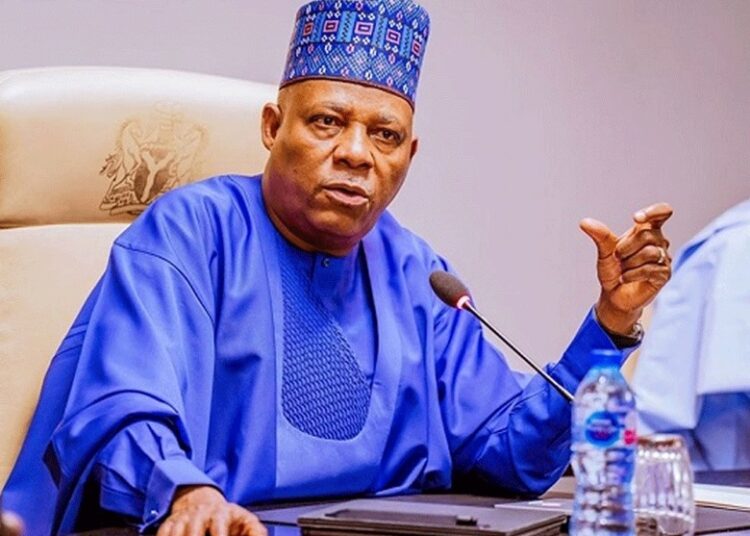Federal Government Pushes for Land Use Act Review
Vice President Kashim Shettima has emphasized the urgent need for a comprehensive review of the Land Use Act, describing it as outdated and inadequate for Nigeria’s evolving socio-economic landscape.
Speaking at the National Land Conference, a three-day event organized by the National Institute for Policy and Strategic Studies (NIPSS) and the Johnbull Amayaevbo Foundation, Shettima highlighted the Federal Government’s commitment to modernizing Nigeria’s land governance system to align with global best practices.
Represented by Deputy Chief of Staff to the President, Senator Ibrahim Hassan Hadejia, the Vice President noted that while the Land Use Act, enacted in 1978, has provided a legal framework for land ownership, management, and administration, it has also created systemic challenges that hinder economic progress. He pointed out that after 48 years, the Act requires a thorough reassessment to remove inefficiencies that slow down economic growth, investment, and equitable land distribution.
Challenges Created by the Outdated Land Use Act
Shettima acknowledged that analysts have long criticized the Act for its rigid policies, which impede development and discourage investors from fully utilizing land as a valuable asset. He explained that restrictive land policies, coupled with bureaucratic bottlenecks, make land acquisition difficult and costly, preventing individuals, businesses, and even the government from maximizing land for industrial, agricultural, and residential purposes.

Government’s Plan for Land Reform
To address these issues, the Federal Government has inaugurated four reform task teams to develop a strategic blueprint for overhauling land administration in Nigeria. Shettima stated that the goal is to streamline land acquisition processes, eliminate unnecessary bureaucratic obstacles, and make land ownership more accessible and affordable for Nigerians. By ensuring a cost-effective, transparent, and efficient land administration system, the government aims to unlock economic opportunities and promote sustainable development across all sectors.
The Importance of Land Reform for Economic Growth
Shettima emphasized that land reform is not just an administrative issue but a critical factor in national development. He noted that modern economies depend on clear, enforceable property rights, which encourage investment, housing development, and agricultural productivity. He called for collaboration between government agencies, policymakers, and stakeholders to ensure that amendments to the Land Use Act solve current challenges while positioning Nigeria for future growth.
Shettima Reaffirms Government Commitment
As discussions on land reform continue, Shettima assured Nigerians that the government is fully committed to making meaningful changes that will eliminate bottlenecks, attract investors, and create a more equitable system where land can be easily acquired, developed, and utilized for the benefit of all. He urged all stakeholders to support these reforms, stressing that a modernized land administration system is essential for achieving Nigeria’s economic and developmental goals.



